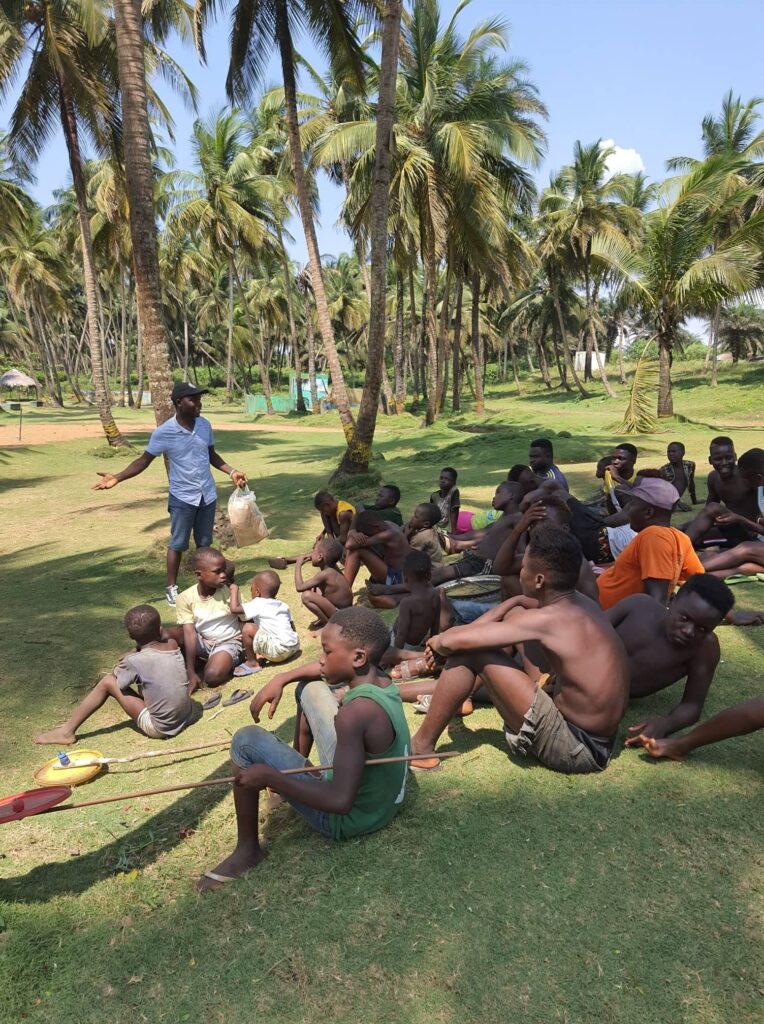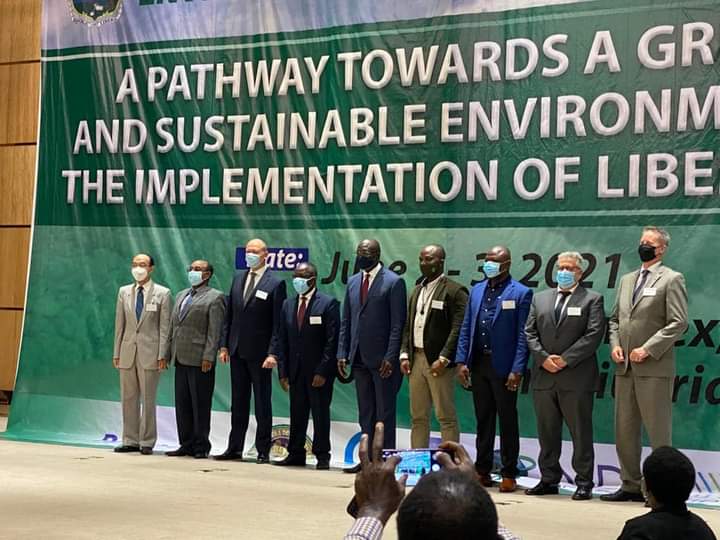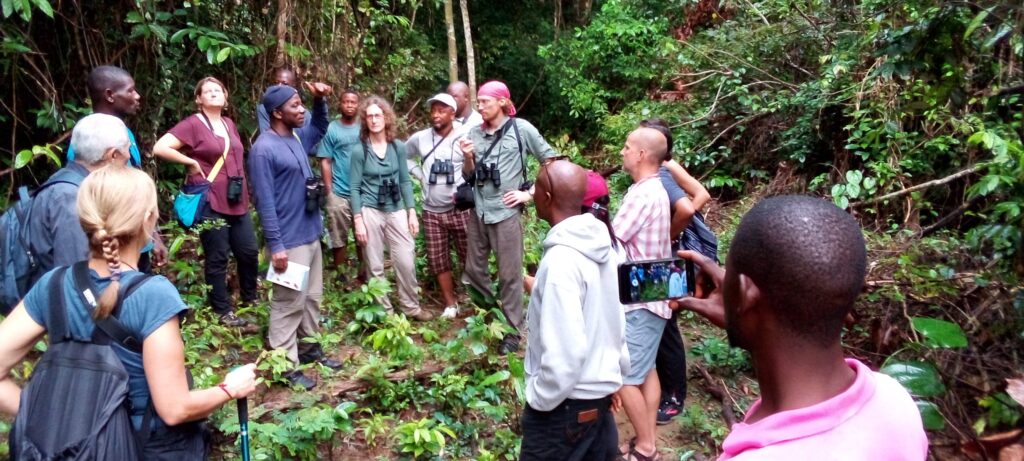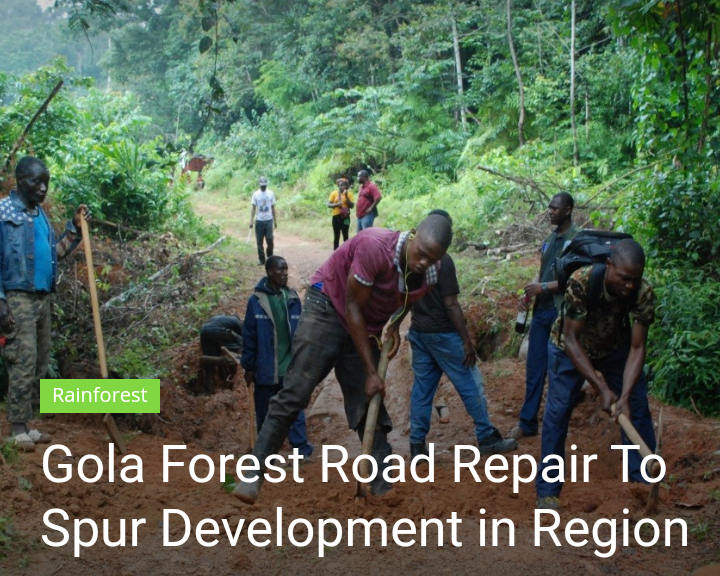Protecting the environment through sustainable development
The importance of Conserving nature is a key component of the existence of the world, and the Society for the Nature of Liberia (SCNL) works seeking to do such. It was power-filled learning and knowledge-sharing experience when SCNL joined conservationists, and interest groups in Rwanda from July 18-23,2022 to participate in the IUCN Africa Protected Areas Congress (APAC).
The Greater Gola Team, SCNL Executive Director, Mr. Michael F. Garbo, PAPFor Project Coordinator, James Mulbah, Richard Hoff, II, Rainforest Trust Project Coordinator, SCNL.
The Land Use Planning Officer for the EU-PAPFor for the Conservation Society of Sierra Leone (CSSL), Patrick Dauda, the Technical Advisor, Combatting Wildlife Crime in Liberia, Tarik Bodasing, who works on Wildlife Crime issues in Liberia Landscapes including Gola were among the thousands of delegates.
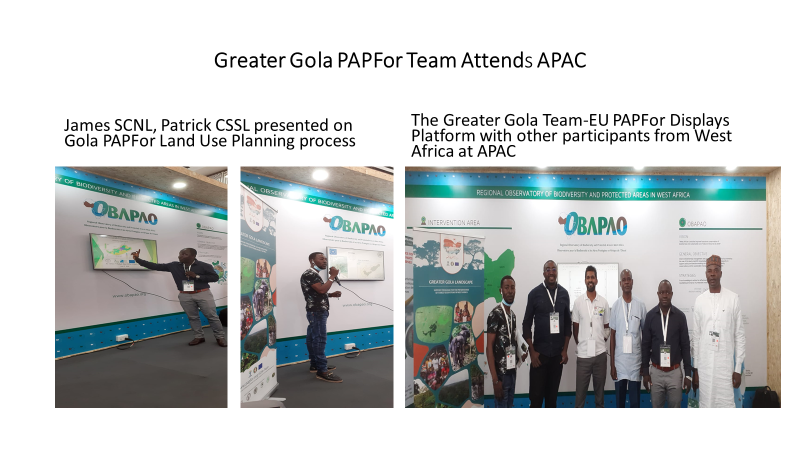
During his presentation, Mr. Garbo shared SCNL’S experience on community engagement, how to manage hostile communities, and how the works of SCNL are improving the conservation of nature in Liberia. “There is a need for communities to get involved because their participations are important in conserving nature. Livelihoods provision and capacity development of the local communities remain one of the strategies that people can learn from”.
The event was the first gathering of African leaders, citizens, youths, major institutions of Protected Areas in the world, and other interest groups to discuss the role of protected areas in conserving nature.
The event was graced by traditional cultural performances from Rwandan Culture Troops. Dressed in their respective cultural and traditional outfits, they displayed different styles as the audience applauded them. The six-day gathering was to position Africa’s protected and conserved areas within the broader goals of economic development and community well-being and to increase the understanding of the vital role parks play in conserving biodiversity while delivering ecosystem services that underpin human welfare and livelihoods.
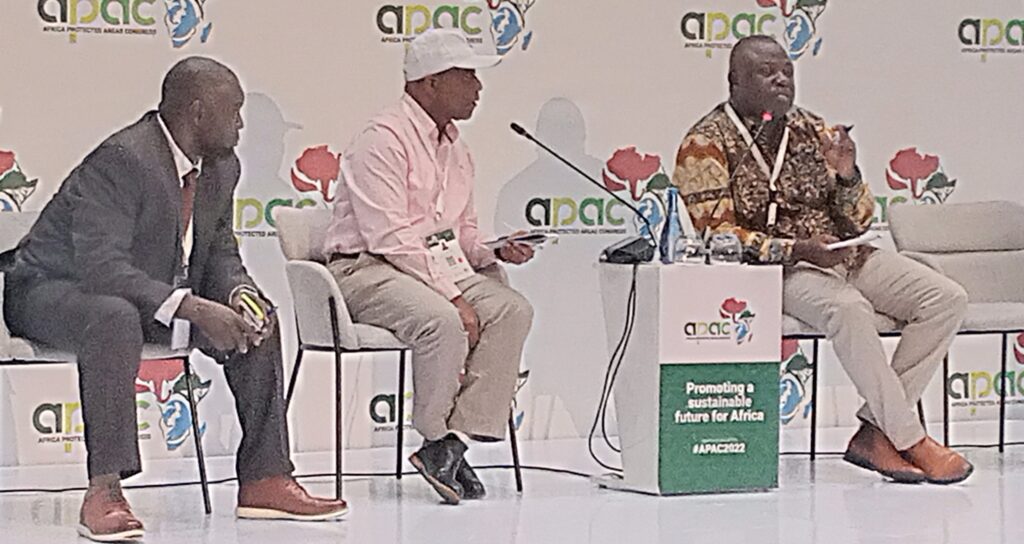
Razan Al Mubarak, President of IUCN through a prerecorded video, thanked the Government and people of Rwanda for hosting the program and admonished the delegates for gathering to discuss the vital roles protected and conserved areas play in the world and the associated benefits for its people.
“There is no clear cookie cutter approach for conservation as such, it requires the combination of different approaches across different continents to address the pressing needs and at the same time provide a sustainable livelihood for its people”, she said.
The African Wildlife Foundation (AWF), co-organizer of this congress, its CEO, Kaddu Sebunya painted the picture of what will happen if current actions are not taken to stop the rate of biodiversity loss. “Even though there is rich biodiversity, human actions are causing the loss of it in an alarming way in the quest for economic gains and this platform is a great time for Africans to discuss the roles of protected areas and find ways of empowering people through sustainable finance mechanism plan.
We must ensure and re-align with urgency the needs of communities. We need to put people in the center of everything we do in the continent if we are to be successful in the efforts of protected areas”.
The Assistant Secretary for the Bureau of Oceans and International Environmental Affairs, United States Department, Monica Medina pledged the US Government’s support to Africa and the world in the fight against Climate Change. “We all know that the Earth is facing a twin crisis (Climate change and Biodiversity loss) and at this conjuncture, without substantial actions by government and societies, many species will be driven into extinction and millions of people around the world will suffer as well. Protected areas are essential for mitigating climate change and without them, many species will have no habitat to grow, flourish and hunt and that’s why we all must collectively work together to conserve nature in meeting the 30 by 30 target”.

